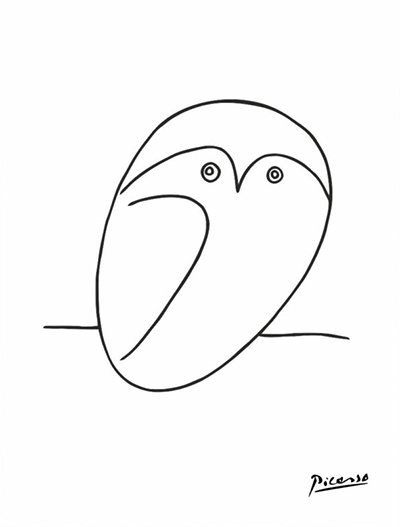
For more than two decades, I lingered in this terrible writer’s limbo of knowing I wanted to write and having no idea what to write about. I’d turn out lengthy, rich, prose pieces with no anchor or sense of story, and feel as if I’d just produced the literary equivalent of unsalted schmaltz. Part of the trouble was that I was young, and hadn’t had enough experience or perspective on that experience to really know what I wanted to say, but I think the real trouble lay in the limiting ways in which I saw subject matter.
While I’d read everything I could get my hands on, when it came to carving out my own literary terrain, I was trying to get by with two, rather grainy beacons to guide my way. The first was to “write what you know,” and the second was to “write the book you want to read.” These aren’t terrible directions to follow, but neither are those signposts that say things like “Children X-ing” and “Danger.” Sure, you get the general idea, but a few specifics wouldn’t hurt.
Instead of just writing what I know, for instance, I’ve found far better subject matter by seeking out the mysteries buried within what is familiar to me. I certainly agree that you don’t want to try to write about the Louisiana Bayou if you’ve never been any further west than Tucson, but if you just try to write about Tucson, chances are you’ll find yourself floundering myopically through a sea of childhood memories. Instead, try identifying subject matter within the familiar by asking yourself what still mystifies you about Tucson, despite knowing the general region like the back of your hand. I like to call this the To Kill a Mockingbird approach, and it rarely disappoints.
Another way into your subject matter is to study the people who make up the emotional fabric of your life. Who do you love the most? Who are your dearest friends? Greatest enemies? What do these characters share in common? Why do they resonate with you? Why are you devoted to them? What are their hidden fears and triumphs, and how do they echo yours? Throw them all in a supermarket for an afternoon and go to town.
A further consideration is your own creative sweet spot. Are you most excited to go deep and long, or would you rather flirt on the surface? Don’t judge; just notice. Do you see yourself following one character through several books, or shaking things up every time you begin a new project? What are you reading? Be honest, here. Maybe you think you’re a Tolstoy gal, but your Kindle is recommending nothing but bodice rippers, “based on your choices.” Hint: Few writers read only one type of writing, and most find their creative sweet spots by picking and choosing from among their own, eclectic tastes. Just seek out that wonderful zone that lies right before taking yourself too seriously and well beyond underestimating yourself.
In the same vein, what sorts of hobbies and ideas preoccupy you? What do you know how to do really well? What do you do terribly but persistently? If you’re a lawyer who kayaks every weekend, then maybe a book that involves parsing through bigger questions while navigating the wild is your cup of tea. Or if you’re a drifter with a passion for spraying great walls with graffiti creations, perhaps your subject matter lies in the realm of a character who drifts on the fringes of society, reflecting its heart back at itself. This might be considered another variation on the theme of writing what you know, but it’s really about capitalizing on your existing passions, preoccupations, and unique ways of interacting with your world. One caveat: if you go too literal here, you’ll miss your creative edge. So even if you’re a politician with a passion for prostitutes, if you don’t find some distance and fabrication to separate yourself from your reality, your fiction won’t have space to breathe.
Finally, pay attention to how your voice and aesthetic can be leveraged more adroitly in the service of certain subject matters and less so in the case of others. For instance, if you’re a witty, cocktail-party denizen with neon art on your walls, you might not find your fullest expression through a book that features an old man and the sea, despite what your sophomore college professor made you think was most worthwhile. The much better book, for you, is probably one in which a glittering college student finds herself wanting to entrap a fascinatingly distant English teacher.
The point is to look closely at the richness and curiosity that’s sitting right at your fingertips, and to honor what lights you up, even if that’s writing about the collection of slugs at the bottom of your garden. Subject matter never exists in a vacuum, and what makes a story truly memorable is rarely just what it’s about, anyway. Instead, it’s the sense that you’ve connected with the author’s innermost light, and that it illuminates a new way of seeing your own hidden gems.
Art: Pablo Picasso, Owl
Leave a Reply